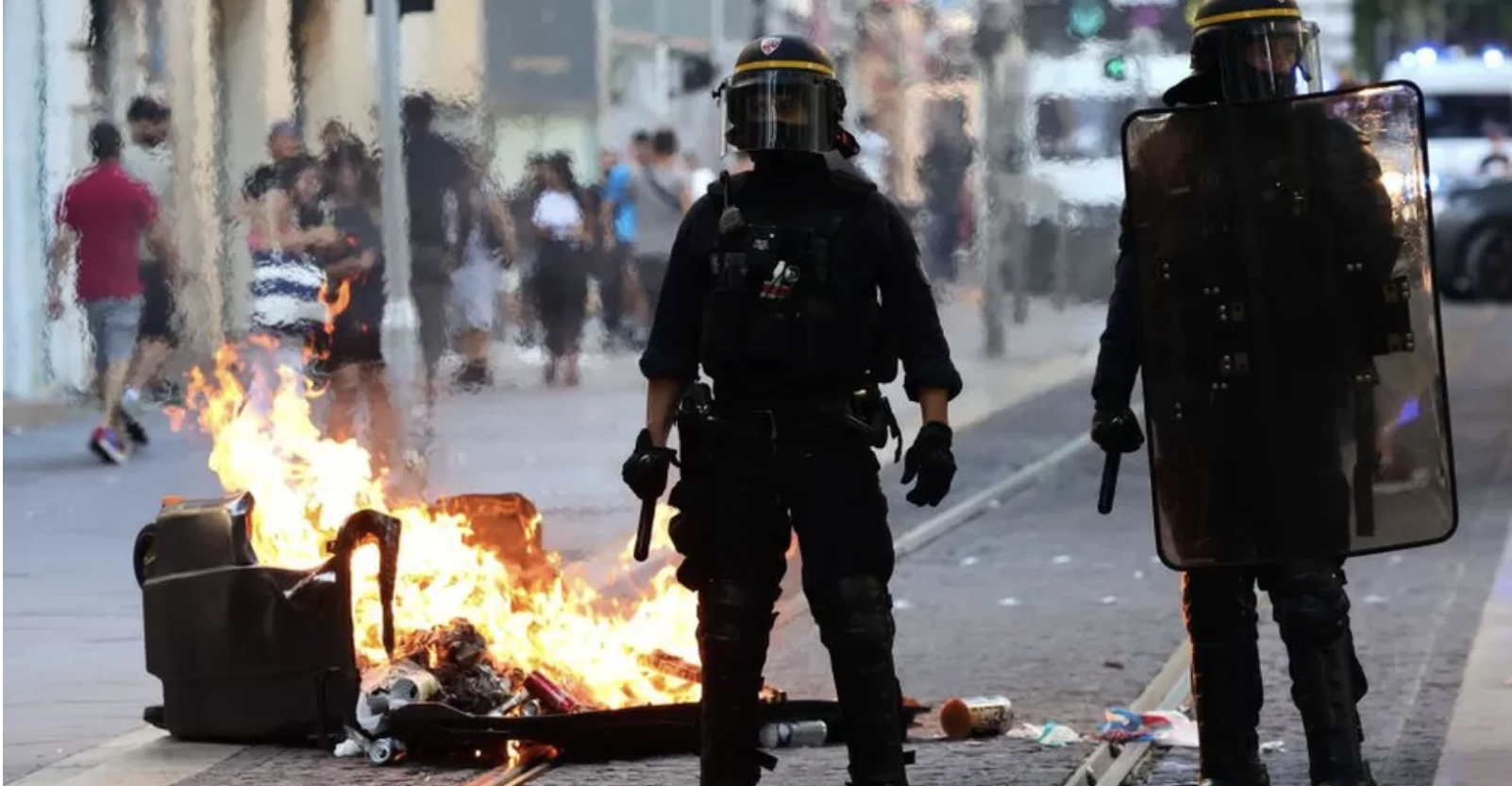The ongoing French protests, or the Nahel Merzouk Protests refer to a series of civil disturbances in France that began on 27 June 2023 following the killing of Nahel Merzouk. In Nanterre, protests began outside the police headquarters by residents which later escalated rioting as demonstrators set cars alight, destroyed bus stops, and shot fireworks at police.
Such protests are not unheard of in France. But the intensity of this protest and the mood across the nation whether amongst those sympathising with the police or with the victim's family hasn’t been witnessed in France since 2005. While President Macron continues his venture of trying to bring stability to the country, there are indications that his political nemesis on the far right may end up benefitting in the polls, due to the tough-on-security and anti-immigration messages.
All across Europe right now, far-right parties of different flavours, namely nostalgic nationalist, populist nationalist, and ultra-conservative whose roots trace back to neo-fascism can be seen gaining traction across countries in Europe.
Rise of the right
In this context, it is important to understand what’s prompting the rise of the right and how it will shape national and international politics. In Europe, the first wave of the political far-right is understood to have come as a reaction to the global financial crisis. Now, it appears to be a reaction to immigration and identity politics. The political implication of the rise of the far right is that right-wing and certain centrist parties will be tempted to move further towards the right.
Now, across Western Europe, far-right political parties are advancing and climbing steadily up the polls, shaping the policies and occupying select ministerial roles in coalition governments. Certain far-right parties in Italy and Spain, with their Neo-fascist roots, could soon be gaining significant traction in the political landscape of their respective countries.
The far right is part of the new coalition government in Finland and, in exchange for key policy concessions, is propping up another in Sweden. In Austria, the FPÖ is comfortably ahead in the polls, roughly a year from the next election. In Germany’s politics, the country’s far-right won its first district council election after surging in the past year from 10% to 20% and into second place in the polls, ahead of the centre-left SPD.
Catherine Fieschi, director of policy at the Open Society Foundations Europe and an expert on populism, authoritarianism and the far right stated that Europe’s increasingly fragmented and polarised politics means “a 48/52 split basically turns these parties into kingmakers. That’s what happened in the Nordics, will probably happen in Spain, and could happen in France.”
Opposition to immigration and the EU were what united Europe’s far-right parties. New causes have now also emerged: the culture wars, minority rights, the climate crisis and the unfair sacrifices that governments insist will be needed to combat it. Their appeal has been enhanced further by the cost of living crisis flowing from pandemic recovery and Russia’s war on Ukraine; by rapid and confusing social and digital change and, everywhere, by mounting mistrust of the mainstream.
Ranging from Italy to Finland, much of Europe’s centre-right is as uncompromising on immigration as the far right, while far-right parties are busy projecting economic discipline, dialling back on Euroscepticism and downplaying past support for Russia. “The far right’s rise has coincided with the decline of a certain kind of left,” Fieschi said. “Far-right parties now seem like a reasonable vote for many of the people who in previous circumstances would have voted for a popular, protective left.”
Many voters in Europe are attracted by the outspokenness of parties on the far-right and there's tangible frustration that traditional politicians don't appear to have clear answers in 3 key areas of life:
- Issues linked to identity - a fear of open borders and an erosion of national identity and traditional values
- Economics - a rejection of globalisation and resentment that children and grandchildren aren't assured a better future
- Social justice - a feeling that national governments are not in control of the rules that govern the lives of citizens
While the officer who killed Nahel is in custody, far-right personalities created a crowdfunding campaign for him, which received €1.6m (£1.4m; $1.7m) in donations before it was closed. Some left-leaning politicians condemned the campaign, but others on the right used it to symbolise their support for the police and it has become a highly divisive issue. In France, Emmanuel Macron was faced by so-called yellow vest protesters, including far-right groupings, when he tried to raise petrol prices in an attempt to put people off travelling by car.
Going forward, this is an issue which will continue to pose a significant challenge to Europe. The major task that lies in front of Europe is to manage the twin challenges of economic revival and coping with these challenges
